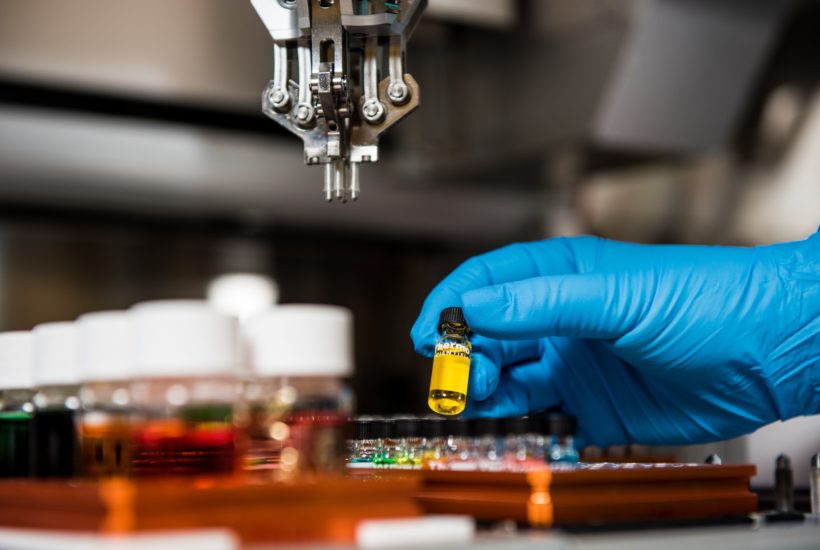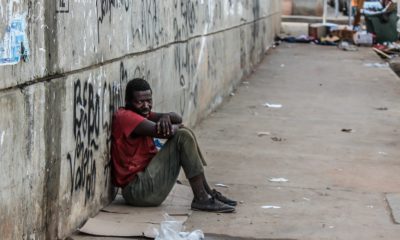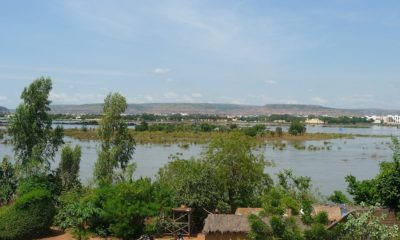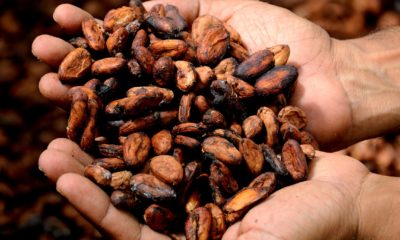Biotech
Researchers continue to develop a vaccine against the Coronavirus
Scientists in Asia, Europe, and the rest of the world are working hard to create a vaccine that could protect millions against the coronavirus, which is rapidly sweeping across the world. Virologists in Britain and the U.S. are working round-the-clock to find a cure. Curevac, the Tübingen-based biotech company, is pursuing a completely new approach in its vaccine research.

Physicians around the world are working on a vaccine against the Coronavirus originating from China. The Tübingen-based biotech company Curevac is also working on an innovatoin solution. However, it is unlikely that there will be a rapid solution to protect people from the virus.
The coronavirus continues to spread from China, and in the meantime, the number of cases has risen to over 4500, and more than 100 people have died as a result of the virus. Although the majority of infections are still concentrated in China and the city of Wuhan, cases are now being reported from a dozen other countries – including Germany, France, and the UK.
The search for a vaccine against Coronavirus is already underway. Various companies and organizations from around the world have started projects to half the spread of the virus. The Tübingen-based biotech company, Curevac, in Germany is also involved in the search, as is the Institute of Virology at the University of Marburg.
Get everything you need to know about finance the with the Born2Invest mobile app. With daily news on biotechnology and other financial headlines in European countries and markets.
Financial support for vaccine projects
The Coalition for Epidemic Preparedness Innovations (Cepi) has promised financial support for three vaccine projects of other companies and research groups. Cepi is a product development partnership funded by Norway, Canada, Germany, Japan, Australia, the Bill & Melinda Gates Foundation, and the Wellcome Trust.
However, a quick solution for protection against the dangerous virus is unlikely to emerage. For example the development of a vaccine against the new lung disease is expected to take at least a year according to Seth Berkley, CEO of the Global Gavi Impact Alliance.
However, it might be advantageous for the researchers to not have to start from scratch to develop a vaccine against the Coronavirus: The gene was quickly sequenced, and in addition, vaccine developers can build on their experience with other pathogens of the coronavirus family.
One example is the Sars virus: there were a total of 22 vaccine projects against the virus, which occurred between November 2002, and the summer of 2003. Although no vaccine could be fully developed, some of the projects produced good interim results.
There is also the Mers virus (Middle East Respiratory Syndrome), which jumped from camels to humans in 2012, and since then, has caused severe respiratory infections in those affected. Four companies and research groups have been working on vaccines against the virus for several years. Some of them are also supported by Cepi.
Curevac takes a new approach
After any vaccination, the body is infected with attenuated pathogens. The immune system reacts the same way it does to real pathogens and produces the appropriate antibody. In order to accelerate the development of vaccines, virologists at the University of Marburg use a so-called “vaccine platform” which functions as a modular system for viruses and suitable antigens.
These “vaccine platforms” are based on established and “defused” viruses that are already used as a base in vaccines. They are recombined with a corresponding antigen, a foreign protein against which the immune system forms antibodies, and should be able to be converted into an emergency vaccine.
However, according to media reports, Stephan Becker, the director of the Marburg Institute of Virology, assumes that it will take at least a year for an outcome to be clear as to whether any vaccine against the Coronavirus is safe. The researchers in Marburg are cooperating with the German Centre for Infection Research in their vaccine project against 2019-nCoV.
The Tübingen-based biotech company, Curevac, is pursuing a completely new approach in its vaccine research – with the mRNA messenger molecule. The building plan of any organism is written in its DNA, and the genetic code stored in the genome also provides specific instructions for the production of proteins or antigens, as in the case of vaccines.
In a mRNA vaccine, the messenger substance provides the information to form a specific antigen in order to trigger an immune response of the body. The pharmaceutical and biotech sector has high hopes for active substances based on mRNA technology.
However, Curevac has not yet launched a vaccine based on this mechanism. A clinical trial of a rabies vaccine is currently underway in which the first clinical phase showed a strong immune response at low doses. The Cepi-funded project of the U.S. company Moderna is also based on the principle of mRNA.
Abbvie wants to make the medication available without cost
The Chinese authorities are currently testing an experimental approach in terms of treatment by using Kaletra. This is a drug used in the treatment of HIV that is produced by Abbvie, a U.S. based pharmaceutical company. Kaletra ensures that the HIV virus cannot multiply in the patience’s body which, in theory, could be applied to a vaccine against the coronavirus.
The authorities in China rely on a publication in the medical journal “The Lancet”, which reports a clinical trial with the HIV drug in patients infected with the coronavirus.
Abbvie confirmed the request of the Chinese authorities for the remedy. The pharmaceutical company wants to make the drug available as a donation in order to help overcome the crisis.
Besides taking Kaletra, the Chinese authorities also recommend interferon-alpha, which also has an antiviral effect. However, both drugs must be taken under medical supervision as they have side effects. In any case it will be some time before we can develop a vaccine against the Coronavirus.
__
(Featured image by Science in HD via Unsplash)
DISCLAIMER: This article was written by a third party contributor and does not reflect the opinion of Born2Invest, its management, staff or its associates. Please review our disclaimer for more information.
This article may include forward-looking statements. These forward-looking statements generally are identified by the words “believe,” “project,” “estimate,” “become,” “plan,” “will,” and similar expressions. These forward-looking statements involve known and unknown risks as well as uncertainties, including those discussed in the following cautionary statements and elsewhere in this article and on this site. Although the Company may believe that its expectations are based on reasonable assumptions, the actual results that the Company may achieve may differ materially from any forward-looking statements, which reflect the opinions of the management of the Company only as of the date hereof. Additionally, please make sure to read these important disclosures.
First published in Handelsblatt, a third-party contributor translated and adapted the article from the original. In case of discrepancy, the original will prevail.
Although we made reasonable efforts to provide accurate translations, some parts may be incorrect. Born2Invest assumes no responsibility for errors, omissions or ambiguities in the translations provided on this website. Any person or entity relying on translated content does so at their own risk. Born2Invest is not responsible for losses caused by such reliance on the accuracy or reliability of translated information. If you wish to report an error or inaccuracy in the translation, we encourage you to contact us.

-

 Impact Investing2 weeks ago
Impact Investing2 weeks agoEnfinity Launches First Solar Plant in Italy with Microsoft
-

 Crypto14 hours ago
Crypto14 hours agoBitcoin Wavers Below $70K as Crypto Market Struggles for Momentum
-

 Markets1 week ago
Markets1 week agoSilver Dips Sharply, While Gold Gains Amid Mixed Stock Market
-

 Crowdfunding2 weeks ago
Crowdfunding2 weeks agoEvenFi Launches Run-Off Service to Protect Investors as Crowdfunding Platforms Exit
























